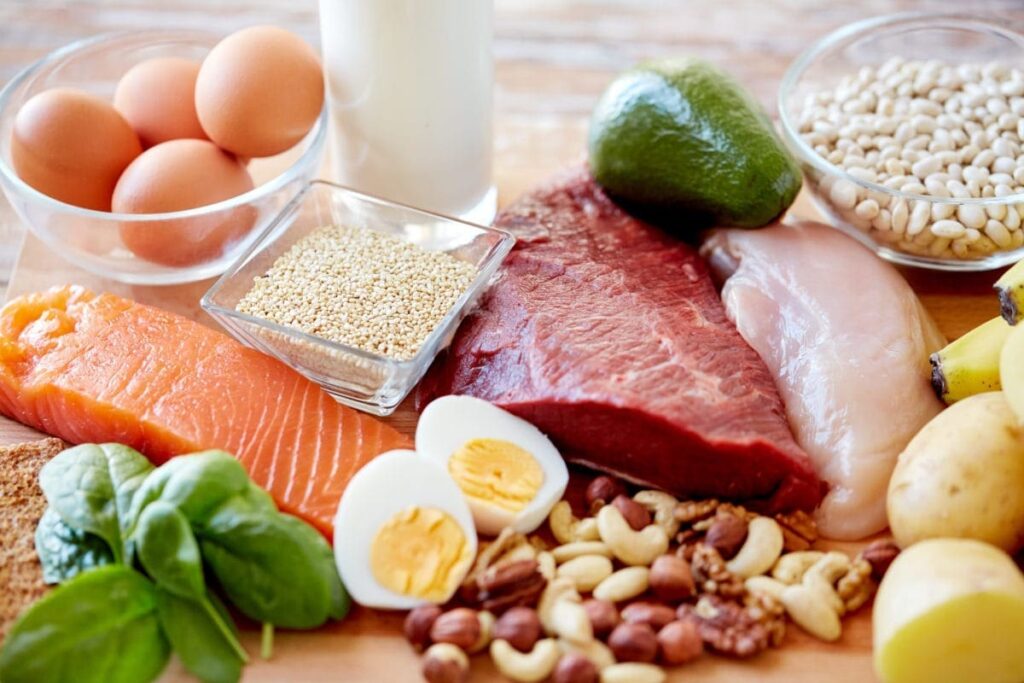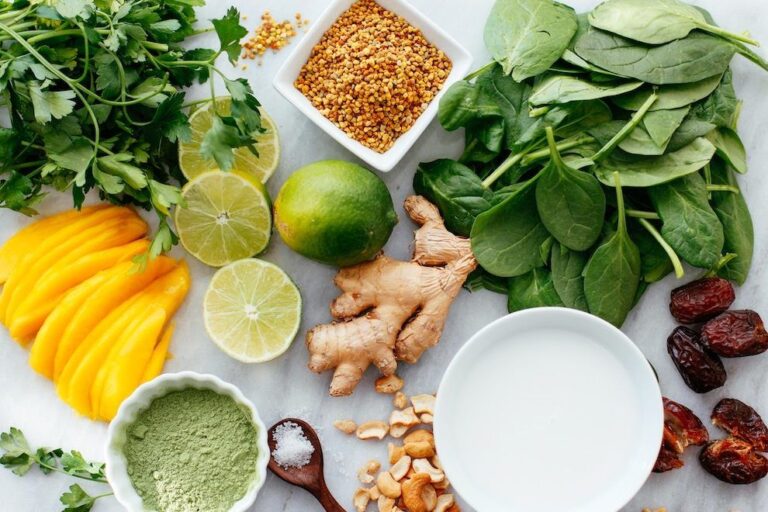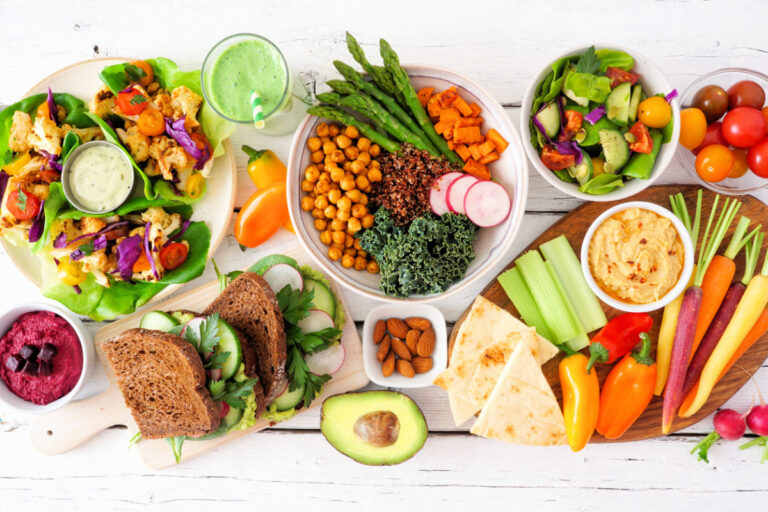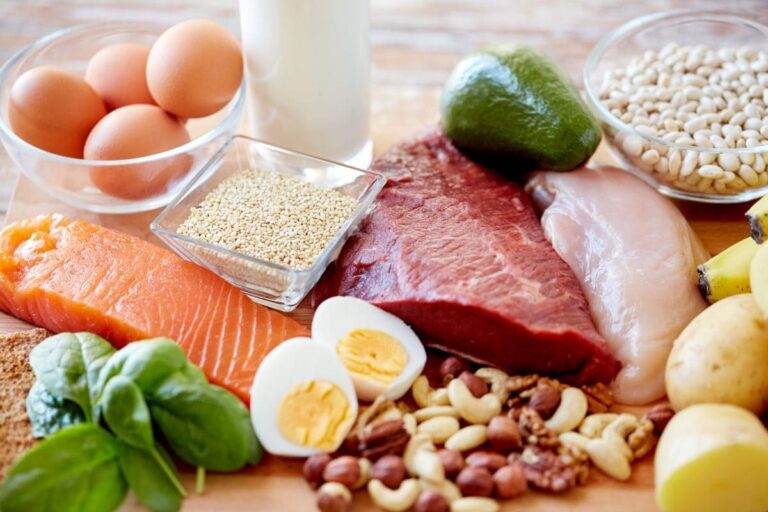
In our modern world, where convenience often trumps nutrition, it’s easy to fall into the trap of consuming foods that are high in empty calories but low in essential nutrients. However, a nutrient-dense diet—rich in vitamins, minerals, antioxidants, and other beneficial compounds—is key to maintaining good health and preventing disease. Nutrient-dense foods provide more nutrients per calorie than processed foods, making them an essential part of any well-balanced diet.
Incorporating these foods into your daily meals will help fuel your body, boost your energy, and ensure you’re getting the vital nutrients you need to thrive. Here’s a list of the best nutrient-dense foods to include in your daily diet for optimal health:
1. Leafy Greens (Spinach, Kale, Swiss Chard)
Leafy greens like spinach, kale, and Swiss chard are among the most nutrient-dense foods you can include in your diet. These vegetables are rich in vitamins A, C, and K, as well as folate, iron, calcium, and fiber. They are also low in calories, making them an excellent addition to any meal.
The high fiber content in leafy greens promotes digestive health, while the antioxidants and vitamins help reduce inflammation and support a healthy immune system. Additionally, the presence of magnesium and potassium in leafy greens is essential for heart health and muscle function.
How to Enjoy Them: Add spinach or kale to smoothies, toss them in salads, sauté them as a side dish, or add them to soups and stews for a nutritional boost.
Why They’re Nutrient-Dense: Leafy greens are packed with essential vitamins and minerals, as well as antioxidants, all while being low in calories.
2. Berries (Blueberries, Strawberries, Raspberries)
Berries are among the healthiest fruits you can consume due to their high antioxidant content, particularly anthocyanins, which give them their vibrant color. Blueberries, strawberries, raspberries, and blackberries are all packed with vitamin C, manganese, fiber, and various other phytochemicals that help protect the body from oxidative stress and inflammation.
Berries are also great for brain health, as antioxidants help improve cognitive function and protect against age-related cognitive decline. The fiber in berries helps regulate blood sugar levels and supports a healthy digestive system.
How to Enjoy Them: Enjoy berries as a snack, blend them into smoothies, top your yogurt or oatmeal with them, or add them to baked goods like muffins and cakes.
Why They’re Nutrient-Dense: Berries are rich in antioxidants, vitamins, and fiber, which promote overall health and prevent disease.
3. Salmon (and other Fatty Fish)
Salmon, along with other fatty fish like mackerel, sardines, and trout, is one of the best sources of omega-3 fatty acids, which are essential for brain health, heart health, and reducing inflammation. These fatty acids help lower the risk of chronic conditions like heart disease and stroke. Fatty fish also provide high-quality protein, which is essential for muscle repair and growth.
In addition to omega-3s, salmon is rich in vitamins D and B12, both of which are important for bone health, immune function, and energy production.
How to Enjoy It: Grill, bake, or pan-sear salmon for a healthy, filling meal. You can also add it to salads or enjoy it in sushi.
Why It’s Nutrient-Dense: Fatty fish like salmon are packed with healthy omega-3 fatty acids, high-quality protein, and essential vitamins and minerals.
4. Nuts and Seeds (Almonds, Walnuts, Chia Seeds, Flaxseeds)
Nuts and seeds are rich in healthy fats, protein, fiber, and a variety of vitamins and minerals that are beneficial for your health. Almonds, walnuts, chia seeds, and flaxseeds, in particular, are nutrient-dense powerhouses. They provide a great source of plant-based protein, as well as healthy fats that help reduce the risk of heart disease.
In addition, nuts and seeds are high in antioxidants, such as vitamin E and polyphenols, which help combat oxidative stress and inflammation. They also provide fiber, which aids in digestion and helps regulate blood sugar levels.
How to Enjoy Them: Enjoy a handful of mixed nuts as a snack, sprinkle chia or flaxseeds over your smoothies, salads, or yogurt, or blend nuts into nut butter for a delicious spread.
Why They’re Nutrient-Dense: Nuts and seeds are high in healthy fats, protein, fiber, and antioxidants that support heart health, brain function, and digestion.
5. Sweet Potatoes
Sweet potatoes are an incredibly nutritious root vegetable and a fantastic source of complex carbohydrates, which provide a steady release of energy. They are rich in beta-carotene, a precursor to vitamin A, which is crucial for maintaining healthy vision, immune function, and skin health.
In addition to being high in vitamins A and C, sweet potatoes are also a great source of fiber, manganese, and potassium. The fiber helps regulate digestion and supports gut health, while potassium is essential for heart health and proper muscle function.
How to Enjoy Them: Roast, bake, or mash sweet potatoes for a nutritious side dish. You can also add them to soups, stews, or even use them to make sweet potato fries.
Why They’re Nutrient-Dense: Sweet potatoes are packed with fiber, vitamins, and minerals, especially beta-carotene, which supports vision and immune health.
6. Eggs
Eggs are one of the most complete sources of protein you can consume, as they contain all nine essential amino acids that your body needs for muscle growth and repair. They are also an excellent source of vitamin B12, which is essential for energy production and nervous system health. Additionally, eggs are rich in selenium, iodine, and choline, all of which play important roles in metabolic function, brain health, and maintaining healthy cell membranes.
Eggs are versatile and can be prepared in many ways, making them an easy addition to any diet. They’re also relatively low in calories, making them a great option for those looking to manage their weight while still getting a nutrient-packed meal.
How to Enjoy Them: Enjoy eggs boiled, scrambled, poached, or fried. Add them to salads, sandwiches, or make an omelette with vegetables for a healthy meal.
Why They’re Nutrient-Dense: Eggs are an excellent source of protein, essential vitamins, and minerals, including B12, selenium, and choline.
7. Avocados
Avocados are a rich source of healthy monounsaturated fats, which can help reduce “bad” LDL cholesterol levels and promote heart health. They are also packed with fiber, which aids in digestion and helps keep you feeling full for longer periods of time. Additionally, avocados are loaded with vitamins like vitamin K, vitamin E, vitamin C, and several B vitamins, including folate.
The combination of healthy fats and fiber in avocados helps maintain steady energy levels, supports skin health, and improves nutrient absorption from other foods.
How to Enjoy Them: Add sliced avocado to salads, mash it onto toast, blend it into smoothies, or use it to make guacamole.
Why They’re Nutrient-Dense: Avocados are packed with healthy fats, fiber, and a wide array of vitamins and minerals, supporting heart health, digestion, and skin health.
Conclusion
Incorporating these nutrient-dense foods into your daily diet will help you feel energized, nourished, and healthy. From leafy greens like kale and spinach to heart-healthy fatty fish like salmon and avocado, these foods offer a wide range of essential nutrients that your body needs for optimal functioning. Whether you’re looking to boost your immune system, improve digestion, or maintain energy levels throughout the day, these foods will provide the foundation for a healthy and balanced diet.
By focusing on nutrient-dense foods, you ensure that you’re fueling your body with the vitamins, minerals, and antioxidants it needs to thrive. With these superfoods in your diet, you can improve your health, increase your vitality, and feel your best every day.




